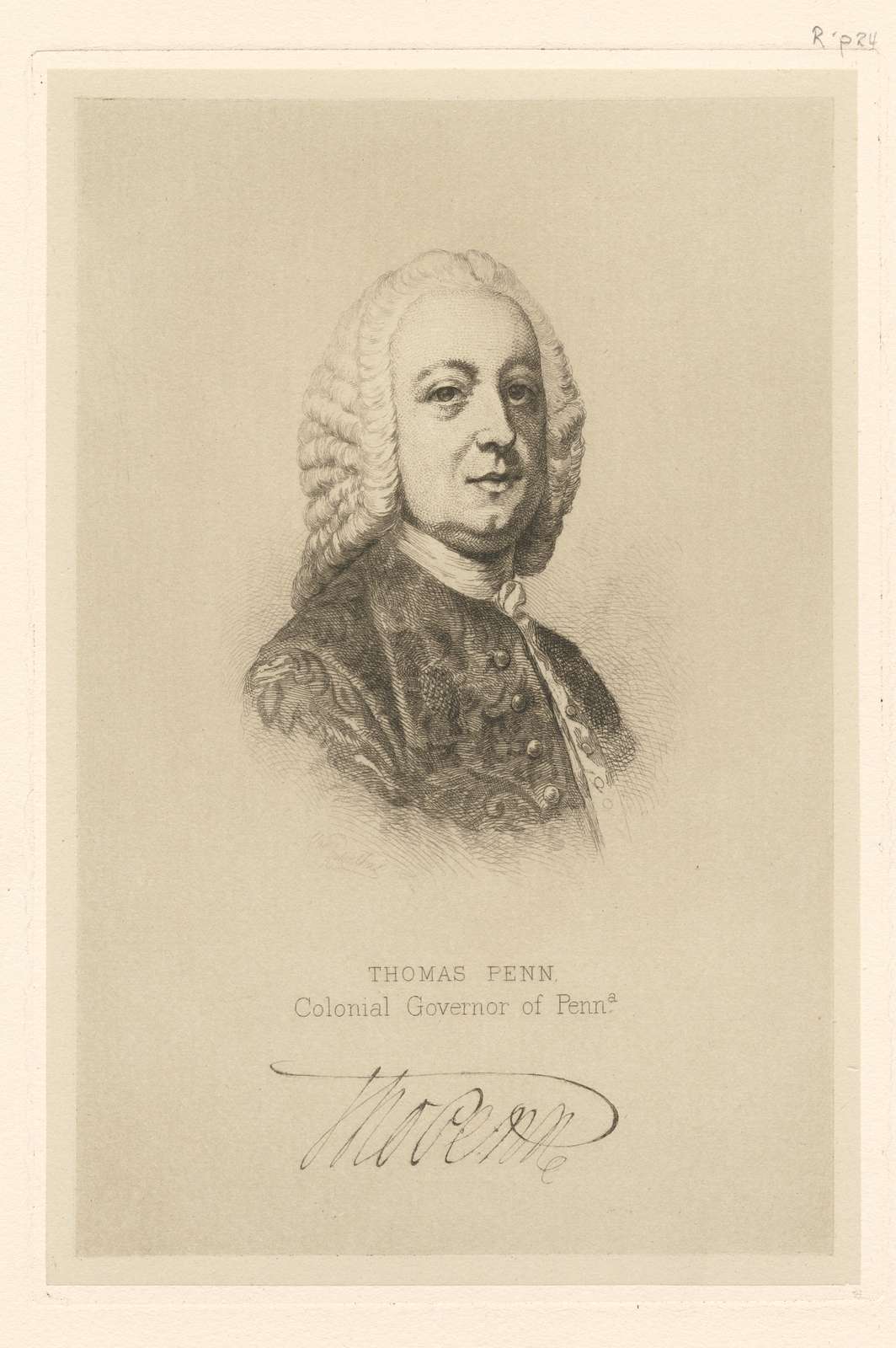61 Politics in Pennsylvania (1740-1754)
 During the administration of Governor Thomas, it is observed that the enlisting of indented or bought servants for soldiers was first permitted to be carried into execution in the province before the act of parliament in that case was made. Which being disagreeable and injurious to many of the inhabitants and contrary to ancient usage, John Wright, one of the people called Quakers, a worthy Magistrate of Lancaster county and a Member of Assembly for the same, having spoken his mind freely against it in the Assembly was therefore with diverse others dismissed from his office as a Judge by a new commission which came out for Lancaster without his name. Before which, having got intelligence of the intention, he came to the court in May 1741 and took his leave thereof in a valedictory speech.
During the administration of Governor Thomas, it is observed that the enlisting of indented or bought servants for soldiers was first permitted to be carried into execution in the province before the act of parliament in that case was made. Which being disagreeable and injurious to many of the inhabitants and contrary to ancient usage, John Wright, one of the people called Quakers, a worthy Magistrate of Lancaster county and a Member of Assembly for the same, having spoken his mind freely against it in the Assembly was therefore with diverse others dismissed from his office as a Judge by a new commission which came out for Lancaster without his name. Before which, having got intelligence of the intention, he came to the court in May 1741 and took his leave thereof in a valedictory speech.
Thomas Penn after this, on the death of his brother John in 1746 became the principal Proprietor and possessed of three fourths of the province. He lived the longest of the three brothers but he appears never to have been very popular in the province. He is said, in general, to have conducted himself rather too much reserved towards the people. And too nearly attached to certain views for his private interest in reference to the province, which are things opposite to popularity. Besides, the imprudence of some persons in the province in order to show their dislike at some part of his conduct which did not please them, tended to create and increase a similar disposition [in him], where the contrary ought the more to have been cultivated and cherished. But in general he was a person of a worthy character and of moderate principles.
In the fifth year of Governor Thomas’s administration, in October 1742 at the annual election, for the Members of Assembly in Philadelphia, happened such an instance of the unwarrantable effect of party spirit as at that time made a lasting impression on the minds of many of the inhabitants. A large number of sailors from the shipping in the river Delaware during the time of election (not being any way interested or, of right, concerned therein) armed with clubs, suddenly and unexpectedly appeared in a tumultuous manner and formed a riot at the place of election. Knocking down a great number of the people, both Magistrates, Constables and others, worthy and reputable inhabitants who opposed them and, by violence having cleared the ground, several of the people were carried off, as dead!
This was repeatedly done upon the return of the electors, till at last many of the inhabitants, being enraged, took measures to force them into their ships and near fifty of them into prison. But they were soon discharged, for it afterwards appeared that they had been privately employed in this work by some party leaders. It being then in time of war when consequently party spirit, which is so nearly allied to it and in the extreme ends in the same, was encouraged to make greater efforts, to distract the public proceedings and under this governor’s administration, by more ways than one, to divert the established form of the constitution from its peaceable order and course into that of its opposite nature. In which an increasing party here, since that time, though generally under the most specious and plausible pretenses, have ever appeared to take delight. For change is grateful to the human race and probably no government of mankind is at all times entirely free from factious spirits. And a large number will always be found, especially where much liberty abounds; which is only proper for the wise and good, whose interest as well as pleasure it will ever be to favor revolutional consequences.
During Governor Thomas’s administration the Indian affairs seem mostly to have been well managed, and harmony continued with that people, which has always been a matter of great importance as well as expense to this province. But as before observed, his ardor in pressing some things of a military nature appears to have introduced unprofitable altercation between him and the Assembly during part of his administration. Which naturally tends to disappointment and dislike between parties of such opposite and fixed principles and so very different views of advancing the public utility as those of Governor Thomas and the Assemblies of Pennsylvania were at that time. But afterwards for diverse years before his resignation, which was in the summer of the year 1747, a much better understanding existed between them.
In consequence of Governor Thomas’s resignation the administration, as usual, devolved on the Council. Anthony Palmer being President till November 1748, when James Hamilton of Pennsylvania arrived Governor from England. A gentleman of considerable fortune in the province and well esteemed by the people. He was the son of Andrew Hamilton, before mentioned as a lawyer of note in Philadelphia and who likewise had held several eminent public offices in the government, with reputation.
Source: Robert Proud, The History of Pennsylvania (1798), II, 220-231. https://archive.org/details/toldcontemporari02hartrich/page/84/mode/2up
